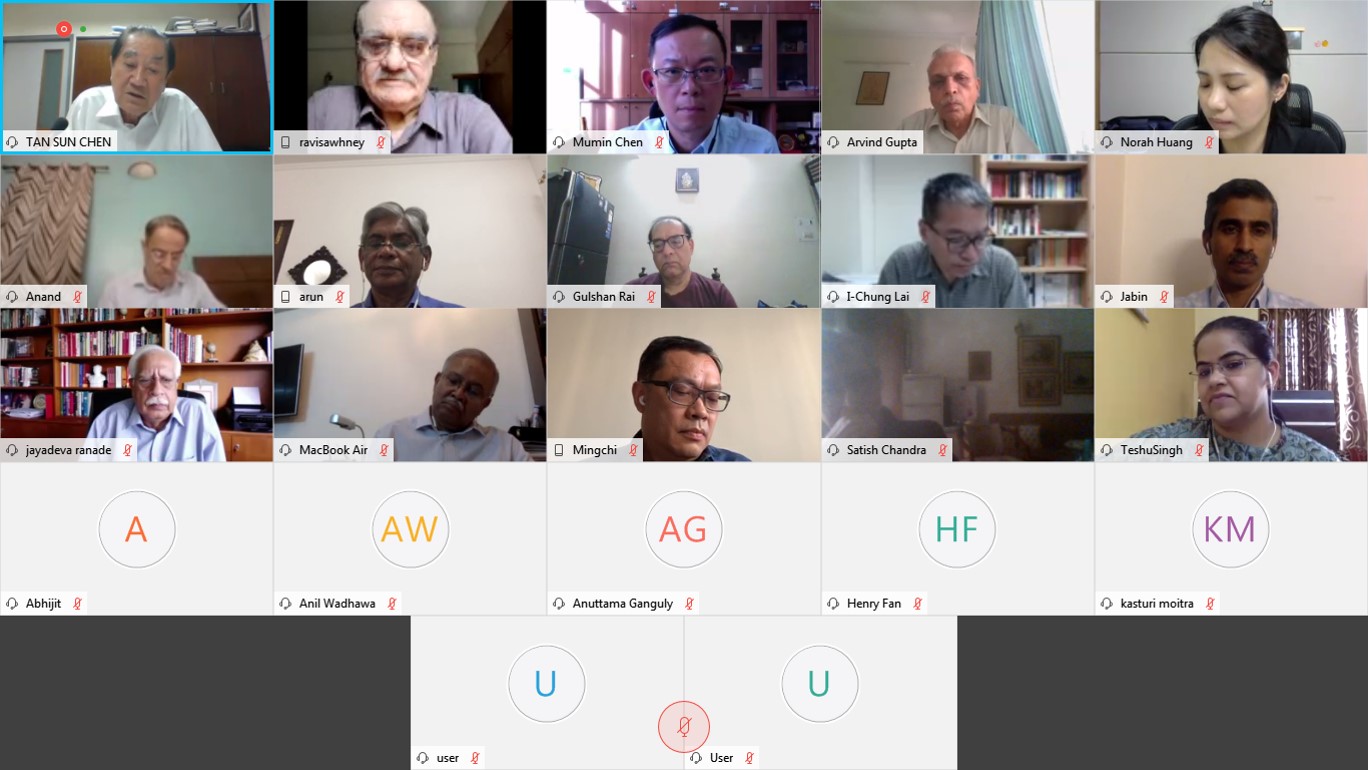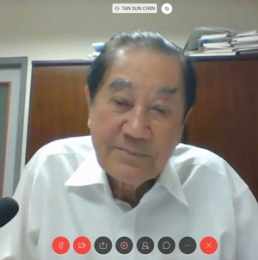The Vivekananda International Foundation (VIF) held a virtual interaction with the Prospect Foundation, Taipei on 18 June 2020. Dr Arvind Gupta, Lt Gen Ravi Sawhney, Mr. Jayadeva Ranade, Amb Ashok Kantha, Amb Arun Singh, Amb Anil Wadhwa and Dr. Jabin Jacob attended the interaction from the VIF. Amb Tan-Sun Chen, Dr I-Chung Lai, Dr Ming-Chi Chen, Prof Mumin Chen and Ms Norah Huang participated from the Prospect Foundation. Dr Arvind Gupta and Amb Tan-Sun Chen delivered the introductory remarks. The discussion was divided into three sessions: The US-China Decoupling, Rationale Behind the Chinese Aggressiveness in the South China Sea, India-China Border and Taiwan and Impact of the Pandemic on India-Taiwan Economic and Science and Technology Collaboration/Engagement.

The salient points that emerged from the discussion follow.
The US-China Decoupling
The Taiwanese participant emphasized that the US-China decoupling is not only happening but is also intensifying during the time of COVID-19. It first started in the economic sphere, particularly in the technology sector related to dual-use technologies in the military and civilian sector and soon entered into the manufacturing sector and started affecting the supply chains. Hence, the decoupling should be seen in the wider context of the US-China economic relations.
The Indian participant highlighted that the US has been struggling for decades to define its relations with China. It is only under Donald Trump, the US has come up with a assertive policy, targeting China on its trade practices. Trump has made the argument that China led companies to have increased unemployment in the US. The US policies toward China have to be carefully understood in terms of Trump’s own personal predilections or long-term orientation. Donald Trump’s approach towards China will wax and wane but there is an undercurrent within his administration to continue with strict policy towards China because of the economic and technology threats.
Rationale behind the Chinese Aggressiveness in the South China Sea, India-China Border and Taiwan
The Indian participants expounded that there is a combination of factors that are responsible for China’s aggressive in the South China Sea (SCS), India-China border and Taiwan. At this point of time, China has been very careful in picking its target; they have not targeted the US because of the realization that they are not yet match for the US. As the COVID-19 surged, Xi Jinping took a back seat. Soon the protests in Hong Kong swelled and the people in China started getting a sense that the government has started losing its grip over the two centenary goals. It was in February 2020 that Xi Jinping started taking control over the party and placed his own people in power and then cracked down on Hong Kong. The people of Hong Kong were challenging the legitimacy of the party. Hence, China started asserting itself. In Taiwan, China was disappointed by a pro-independence Democratic Progressive Party (DPP) government’s coming back to power. Hence, China started flexing its muscles by sending the aircraft carrier and issuing strong statements. Xi Jinping feels confident, in pushing his aggressive policies to strengthen his own position.
The Taiwanese participant argued that the CCP is now facing a series of problems that burden its political and administrative capability, including the first-ever economic downturn since China began to report its economic performance in the early 1990s, a simmering second wave of coronavirus gradually taking shape in Beijing, rising unemployment, and a number of natural disasters, including African swine fever, a flood endangering the safety of the three gorge dam, and diseases other than COVID-19. Xi Jinping is being assertive on these areas to regain his legitimacy, and nationalism is the game that he has been playing for some time. Furthermore, as the leader of a party that holds the belief that power grows out of the barrel of a gun, Xi needs to maintain his absolute control over the military. Thus he is engaging in a series of geopolitical conflicts to distract the Chinese people from its governance failures.
Taiwan and Impact of the Pandemic on India-Taiwan Economic and Science and Technology Collaboration/Engagement
The Taiwanese participant highlighted that the India-Taiwan trade in 2018 was USD 7.05 billion. It is only 1.1 per cent of Taiwan’s overall trade. This number is minuscule as compared to Indian-China trade. In 2019, the Taiwanese investments in India were USD 700 million. This is much below its potential and also there is absence of India-Taiwan free trade agreement (FTA). The Science and Technology agreement was signed in 2007 but there has not been much cooperation. With India now coming up with a new science and technology and innovation policy, Taiwan needs greater focus as a trusted partner in India. Under the umbrella of the New Southbound Policy, more substantial changes and exchanges between India and Taiwan are visible. Under the policy, the cooperation is not only limited to science and technology but also in other areas such as agriculture, tea, medical research and traditional medicines should also be explored. The Century Development Corporation (CDC) has acquired land in Bengaluru and aims to build a technology park. All this cooperation has been disrupted by the COVID-19. Once the COVID-19 crisis is over many of these projects will resume.
The Indian participants underlined that Taiwan has dealt with the pandemic in an exemplary fashion. It shows just exactly how prescient the Taiwanese have been in their analysis of China. It illustrates that the Taiwanese ability to deal with disruptions, in general, provide much food for thought.
The US-China decoupling has provided an opportunity for India-Taiwan cooperation. In the agricultural sector, there are prospects of smart farming. Taiwan has expertise in irrigation, plant diseases and tea plantation. In the field of the environment, both countries can collaborate on waste management, smart street-lighting, sensors- video-camera, flooding sensors, smart manufacturing and smart medicine. In Taiwan, the central government is responsible for issues related to investments while in India it is the state government that is in-charge of the issues related to investments by foreign companies. There is a requirement for a separate desk on Taiwan Investment Organisation within the Commerce Ministry.
Overall, there was a consensus that India-Taiwan relations need to be more ambitious and there is a requirement to develop a fresh and new agenda in the relations. The COVID-19 has given India and Taiwan an opportunity to rethink about the FTA and strengthening economic engagement.







Post new comment